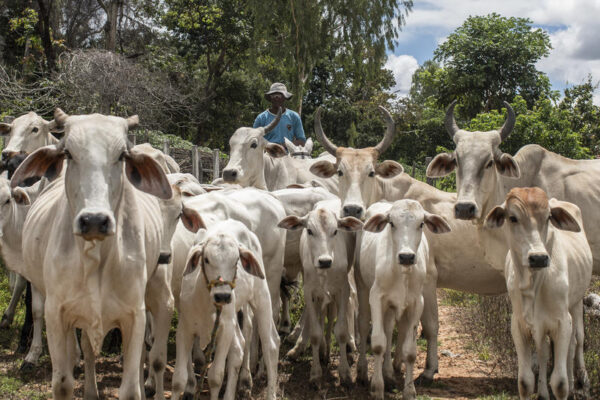Unearthed today: Will UK climate rules prevent Amazon deforestation?
Welcome to Unearthed today the daily climate and environment news wrap from @damiankahya. Sign up below.

Hi there!
I’m reading about… Beef and Amazon deforestation
Days after the news that deforestation of the Amazon rainforest has reached a 12 year high; Global Witness reveals how the global beef industry – owned by firms which control much of the UK and global meat trade – remains complicit in driving the destruction.
In it’s latest investigation the investigative campaign group found that Brazilian meat giants JBS and Marfrig continue to buy both directly and indirectly from numerous ranches linked to deforestation. The report documented how these purchases were not picked up by auditors who found the firms to be deforestation-free and how the companies continued to be significantly funded by major western banks with anti-deforestation policies.
The UK has put in place new rules banning imports linked to illegal deforestation. But not only do the rules allow for a loophole where deforestation is legal (as in the Cerrado) or deliberately obscured (as with indirect suppliers) they also don’t cover the finance sector.
The companies deny the allegations, also reported on Newsnight, which – unless I’m missing something, are yet to be significantly reported anywhere else.
and…. The secret scheme to skim millions off central Asia’s pipeline megaproject
A Gazprom director profited from a secret scheme linked to the construction of a multibillion-dollar gas pipeline between central Asia and China, according to documents seen by Tom Burgis at the Financial Times.
Staff and consultants working for Timur Kulibayev designed a scheme for the Kazakh billionaire to receive at least tens of millions of dollars from contracts related to the vast project. Mr Kulibayev, a billionaire who has served on the Russian energy giant’s board since 2011, is the son-in-law of the former Kazakh president.
The Asia Gas Pipeline project was part of a grand undertaking that accelerated a shift of economic power from west to east – by exporting Russian gas to China. They were backed by Chinese state loans. The claims are – again – denied by all involved.
Three things you need to know
UK emissions pledge could lead to fight over gas boilers: Boris Johnson is set to pledge the UK to cut emissions by 68-69% by 2030 on 1990 levels. That’s a smidgen over what the EU would have called for if the UK had remained in the union but below the demands of many campaigners. The pledge does however open up a new front because it implies – for the first time – the need for urgent action to cut the number of gas boilers in UK homes.
Carney calls for ‘$100bn a year’ global carbon offset market: That’s more than 20 times the size of the already deeply problematic market today. “The demand for this is going to be huge, because we have this big shift. More and more companies — and it will be a tsunami by Glasgow — will have net zero emissions plans,” said Mr Carney. The claims open up three fundamental questions which Carney has so far avoided – but which will be confronted in forthcoming climate talks. 1) Does hypothetically avoided deforestation count in a world where deforestation isn’t meant to take place at all 2) When nations reduce their emissions in line with Paris targets – can companies claim credit for these reductions by buying “offsets”, which creates double-counting. 3) Where nations can cut further than required – can other nations purchase these cuts for themselves, which creates an incentive not to cut emissions at home if it can be done more cheaply elsewhere. The answer to all of these so far in the talks has, roughly speaking been no, but I find it hard to see how you produce a $100bn market out of thin air without bending those rules. Watch this space.
Heat is killing hundreds of thousands – and is set to kill more: Rising temperatures and environmental pollutants are already endangering the health and well-being of thousands with fatal consequences for thousands of older men and women, a team of public health experts warned Wednesday. Their report, published in The Lancet, called on lawmakers to stem the rise of planet-warming gases in the next five years. “The overarching theme I stress to the incoming administration is making health central,” said Dr. Renee N. Salas, an assistant professor at Harvard Medical School and lead author of the United States policy paper contained in The Lancet report, in a call with reporters. “Climate action is a prescription for health.”

